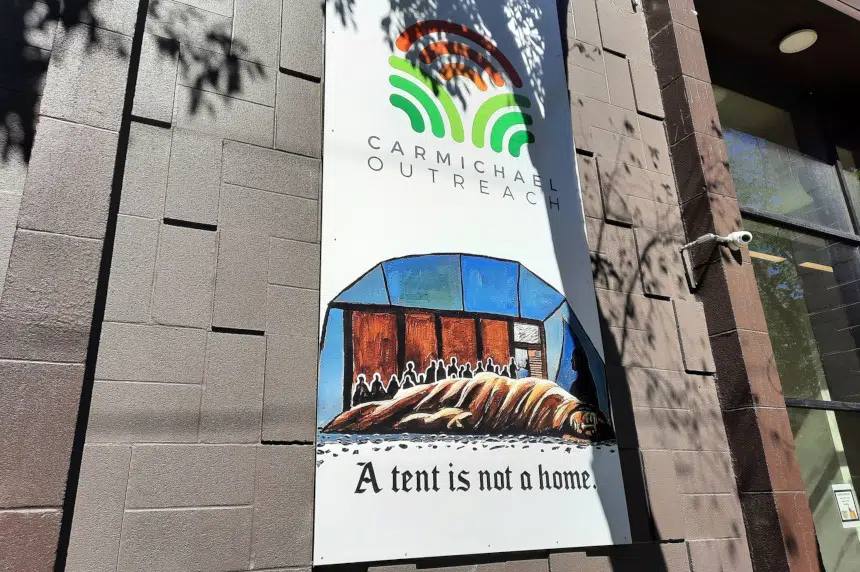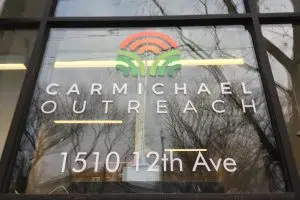Just over one year after the full implementation of the Saskatchewan Income Support (SIS) program, those who work directly trying to navigate it say things are worse than ever.
Activists and community-based organizations (CBOs) who work with the most vulnerable were sounding the alarm about the program even before it was fully implemented on Sept. 1, 2021.
In the ensuing months many people have come forward to tell their stories:
A father who says confusion with the new program had him at the brink of eviction;
A man who quit trying to deal with the program because it was too complicated; and
A man and his son who turned to a homeless camp for shelter.
A few months after full implementation, the province relented and restored direct payments to landlords and utility companies for those most at risk and said it would expand trusteeship for those having trouble managing their own affairs.
In the spring budget, the provincial government raised the basic benefit by $30 a month and shelter benefits by as much as $25 a month. The NDP and other critics argued it wasn’t anywhere near enough.
‘We’ve all voiced our concerns’
Despite those changes, some working within CBOs say things are worse than ever.
“We’ve all voiced our concerns on why the program is failing people and why people are falling through the cracks,” said Alexis Csada, a housing and support worker at Carmichael Outreach.
Csada has a client she’s calling James to protect his privacy. She said James has housing but Social Services wouldn’t make his rent cheque out the way his landlord required, putting both the building owners on the cheque. So direct payments had to be stopped and a new cheque made out to James so he could pay it himself.
That all happened before Aug. 1 but James didn’t actually get the new cheque until Aug. 24.
Csada said, by then, “the landlord was going to start the eviction process right away, which is fair.”
When James did get the cheque, it was only for $700 — which is $170 less than his rent and $300 less than what he’s eligible for.
Csada spent a lot of time trying to figure things out for James but said Social Services was very inflexible. There was confusion with the worker who was covering for James’ caseworker’s holiday, then it went to the covering supervisor.
“(He) thought it was too confusing and he had asked me to wait until (James’) worker was back from holidays, but … (James) didn’t have that much time to wait because he was facing an eviction notice,” explained Csada.
After a plea to the Social Services minister and a ministry referral, things got straightened out for James but Csada said this isn’t a rare occurrence.
“I could have stories and stories to tell you about the different folks that have faced eviction, gone through eviction, lost housing, were unable to obtain housing due to Social Services and the lack of flexibility with that program,” said Csada.
“There’s a lot of people that just get so frustrated entirely that they take themselves off the program because it’s not worth dealing with.”
Social Services doesn’t keep track of why people drop off SIS, so whether they found a job, get fed up or died, Csada said the ministry counts it as a win.
In the year since SIS was fully implemented, Csada said everything seems to have got worse, homelessness is far more visible in the community and intakes have tripled at Carmichael Outreach.
“We’re unable to house anybody. The most we’re able to do some days is give somebody a tent if we have one because no one’s renting to the folks on SIS. There’s a direct correlation between the implementation of the SIS program and the increasing homelessness and crisis within the community,” said Csada.
She said it was much easier to house people who were on the Saskatchewan Assistance Program (SAP), which preceded SIS. Payments could go directly to landlords, utilities were covered separately and landlords were more open to working with SAP.
Csada has only been doing this work for a couple of years but one of her co-workers who’s been doing it for more than 30 said this is the worst she’s ever seen it.
“We’re trying to adapt to the failing system that we’re seeing in front of us and provide folks with the most support that we can give them, but in terms of housing it’s almost impossible right now,” said Csada.
‘We’ll continue to listen’
In the fall and spring sittings, Lori Carr was the Social Services minister but a summer cabinet shuffle brought Gene Makowsky on the file.
When asked his thoughts about the full program after its first year, Makowsky said he’s been trying to wrap his arms around the issues and said something he would repeat several times during the 20-minute interview: He’s willing to listen and meet people’s concerns.
“We will see what the budget brings in the spring and that would probably be the next point where you’d see something done if we’re able to,” said Makowsky.
Makowsky pointed to changes made to SIS, including the education training incentive and the increase in money to pay for more trusteeship provided by CBOs for those who need more help. He also talked about the $500 affordability tax credit the Saskatchewan Party government announced last month.
When it was pointed out the $500 tax credit cheque is a one-time payment and doesn’t address how workable the program benefits themselves are, Makowsky said that’s “fair enough.”
“I’m not sure you can discount that that is a large increase in here to help with affordability. You’re right, it is one-time — (it) comes at a good time though, I think, as we are seeing inflationary pressures,” said Makowsky.
When criticisms about the inability to house clients on SIS were put to the minister, he talked about the province working with landlords to deal with the problem, and the change to SIS late last year to allow direct payments for some.
“Over time, as we continue to work with landlords — I’ve had a meeting with them (and) we’ll continue to listen on that side of things — and hopefully we’ll be able to continue to have, along with the trustee work we’re doing, to have more of those payments go to our landlords,” said Makowsky.
The minister also didn’t know if a direct line can be drawn between the SIS program and an apparent increase in homelessness in the province. Makowsky said homelessness is a complex issue.
“It’s not just a payment amount. I think disabilities, mental health, addictions, interpersonal and intergenerational trauma, that is certainly a part of what is going on in terms of homelessness,” said Makowsky.
“I think it’s fairly simplistic to say it’s just a SIS thing and nothing else.”
When asked about complaints around SIS being too complicated and frustrating for people to deal with, Makowsky said the new program was designed to simplify things.
“It’s interesting to hear that and we can look into that a little more, but SIS was brought forward partly to combine two old programs into one to make it simpler for people to understand the benefits better,” said Makowsky.
Makowsky praised the staff within Social Services as dedicated and passionate, though he also admitted there are vacancies and this ministry, like others, is having challenges finding people to work.
The minister did say long wait times in the call centre are something that is a concern to him and they’ll work on it. While the ministry claims the average wait time is less than half an hour, Csada said they can stretch to three hours or more, and for people with pay-as-you-go phone plans, that’s not feasible.
The minister didn’t go so far as to admit there are problems in the program, though.
“I certainly can’t make promises sitting here today. Anything we do has to be affordable and sustainable going forward but we’ve made some movement on the SIS program and we’ll continue to listen,” said Makowsky.













